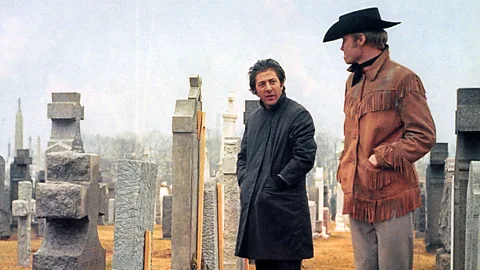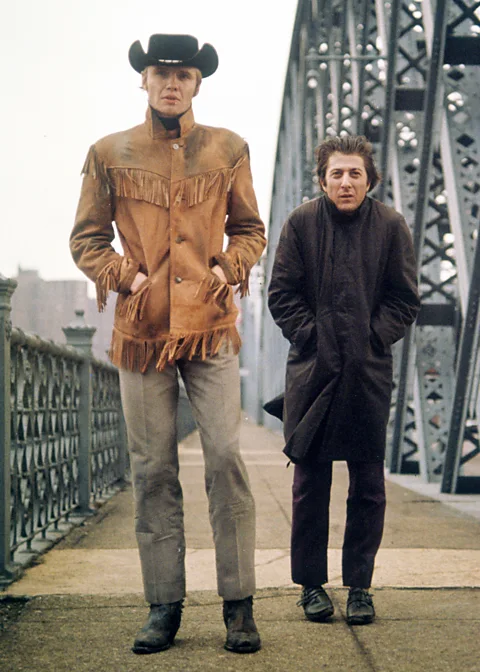'I'm not interested in happy endings': How Midnight Cowboy became the only X-rated winner of the best-picture Oscar
 Alamy
AlamyWhen Midnight Cowboy came out 56 years ago this week, it instantly upended Hollywood's idea of a mainstream hit. A bleak tale of loneliness, sexuality and survival in New York, it was powered by career-defining performances from its lead actors.
"I did have problems with it as I now see the movie," actor Dustin Hoffman confessed to the BBC in 1970 as he reflected on his performance as the sickly New York grifter Enrico "Ratso" Rizzo in Midnight Cowboy. "I can see where I am inconsistent in the character."
The film, released in cinemas on 25 May 1969, would go on to earn Oscar nominations for both Hoffman and his co-star Jon Voight, who played a naive young Texan with aspirations to be a rich woman's gigolo.
Based on James Leo Herlihy's 1965 novel, Midnight Cowboy's bleak tale of loneliness, sexuality and survival in New York was very different from the film in which Hoffman had his breakthrough role, The Graduate. Having played a clean-cut middle-class young man, fresh out of college, Hoffman did not strike its director John Schlesinger as the obvious choice to play the story's down-at-heel streetwise conman.
"Jerry Hellman [the film's producer] had seen him in a play by Henry Livings, Eh?, off Broadway and said, 'He's a wonderful character actor, don't just go by The Graduate, you had better go and meet him,'" Schlesinger told the BBC's On Screen in 1994. "So, I went to New York, and Dustin met me in a dirty old raincoat and we wandered around the 42nd Street area and the Hell's Kitchen area, which is sort of a largely Italian area, and he blended in so perfectly with the background that by the end of the evening, there was absolutely no question that he had got the part."
But to play the ailing Rizzo, who suffers from a disabled leg and tuberculosis, Hoffman felt that he needed to keep checking the film's rushes while filming to ensure his performance was consistent between takes. "I had to try and keep a posture, a gait going, a way of walking, a dialect going. I was very worried about the fluctuation of that," he told the BBC's Film Night in 1970, when he was interviewed on the set of his revisionist Western, Little Big Man. The actor later told Vanity Fair in 2000 that he ended up putting a stone in his shoe to ensure that he would limp on camera without having to think about it.
 Alamy
Alamy"I think the average person will see work like that and think it is very difficult," said Hoffman. "But my own feeling is that Jon Voight's part was far the more difficult role in Midnight Cowboy because it was somehow a little more foggy, it didn't seem to really have a razor's edge to it as written, and it's to his credit that he brought what he did to it."
Voight, too, was far from a shoo-in for the role of an out-of-his-depth would-be hustler who ends up broke and desperate in New York, and forms an unlikely bond with Rizzo. The actor had initially been dismissed by Schlesinger, who felt that he didn't have the right look for the role. "We turned down Voight, and a wonderful casting director in New York in those days, Marion Dougherty, said, 'You are missing something, why won't you see Jon Voight":[]}
